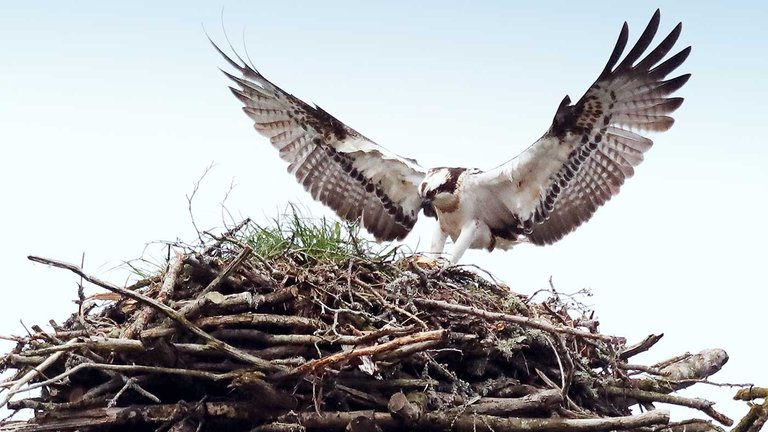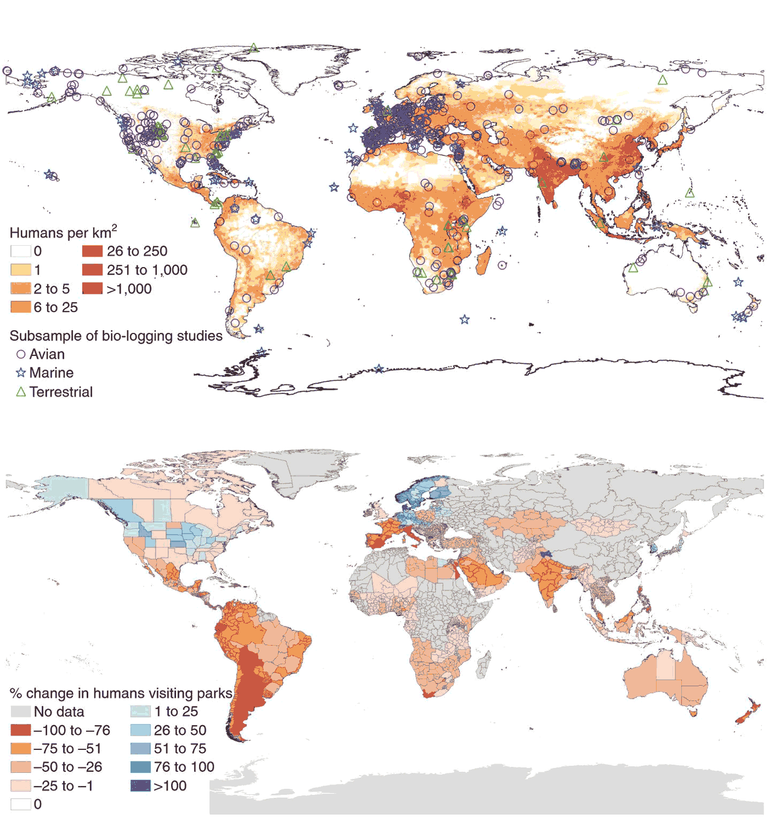The ‘Covid-19 Bio-Logging Initiative’ aims to quantify the effect of reduced human activity (dubbed “anthropause”) on other species.

The coronavirus lockdown has been a bit of a ‘Jekyll and Hyde’ situation for the outdoor industry. On one hand, bike sales have gone through the roof with more people working from home. On the other hand, the UK’s biggest outdoor gear retailer, Go Outdoors, is on the brink of collapse.
The same can be said for nature. There have been many accounts on social media of wildlife making the most of our absence—moving freely through surprisingly urban environments. In some places though, the lack of human activity may have been detrimental; conservation groups, for example, have warned of an increase in poaching driven by poverty, which is further exacerbated by the absence of ecotourism.
Related: ‘Take care of nature’ to prevent pandemics like Covid-19, says expert
Now, a new initiative has been launched to scientifically study the effect of the coronavirus lockdown on wildlife. To do so, researchers will examine wildlife tracking data before, during and after the Covid-19 outbreak.
The UK-led team outline the mission of ‘The Covid-19 Bio-Logging Initiative’ in the journal Nature Ecology and Evolution. The aim is to determine what impact the global-scale, temporary slowdown in human activity (dubbed the “anthropause”) has had on other species.
Measuring that impact, they say, will reveal ways in which we can “share our increasingly crowded planet”.

Locations of a subsample of active animal tracking (‘bio-logging’) studies superimposed on human population density. Graphic: The Covid-19 Bio-Logging Initiative
Lead researcher Prof Christian Rutz, from the University of St Andrews, is president of the International Bio-logging Society. He pointed out that bio-loggers—small tracking devices fitted to animals in order to record their movements and other behaviour—have been collecting information in habitats all over the world throughout the pandemic.
“There is a really valuable research opportunity here, one that’s been brought about by the most tragic circumstances, but it’s one we think we can’t afford to miss,” he said.
“No one’s saying that humans should stay in lockdown permanently.
“But what if we see major impacts of our changes in road use, for example? We could use that to make small changes to our transport network that could have major benefits.”
Nature has taken over Chernobyl
This is not the first time scientists have studied the effect of a sudden reduction in human activity on wildlife. Prof Jim Smith, from the University of Portsmouth, has been part of what might be considered the first “anthropause” study—a long-term investigation into the changes in the abandoned landscape around the damaged Chernobyl nuclear power plant.
Related: Amazing photos show how nature has taken over Chernobyl
“Just a few years after the evacuation of the Exclusion Zone, Belarussian and Ukrainian researchers found species associated with humans—like pigeons and rats—were disappearing, but wild animals—wild boar, deer and wolf—were multiplying,” he said.
“Still abandoned more than 30 years later, the zone has become an iconic example of accidental rewilding.
“At great economic and human cost, Covid and Chernobyl forced us to push the pause button on our environmental damage.
“Stopping some of those impacts altogether will be hard, but will be helped by what we can learn from these extreme events.”
Featured image: Charlie Marshall/Flickr
This post is also available on our website at: adaptnetwork.com/environment/bio-logging-study-coronavirus-lockdown-wildlife
Website: adaptnetwork.com
Hive: peakd.com/@adaptnetwork
Facebook: facebook.com/adaptnetwork
Twitter: twitter.com/adaptnet
Minds: minds.com/adaptnetwork
"anthropause" - a wonderful new word. I call it The Great Pause. Love it on every level except the massive plummeting income. 😆 This is a really important post. Considering Covid as naturalmedicine for Mother Earth changes the perspective quite a bit.
Thanks for bringing to our awareness this study! May it help folks become more conscious of our impact on the wildlife to motivate us to take measures to minimize those impacts!
Curated for #naturalmedicine by @porters.

We encourage content about health & wellness - body, mind, soul and earth. We are an inclusive community with two basic rules: Proof of Heart (kindness prevails) & Proof of Brain (original content). Read more here.
Our website also rewards with its own Lotus token & we'd love you to join our community in Discord. Delegate to @naturalmedicine & be supported with upvotes, reblog, tips, writing inspiration challenges for a chance to win HIVE and more. Click here to join the #naturalmedicine curation trail!
!
For sure, this period has highlighted how much human activity has impacted local wildlife populations. Hopefully we can find a balance moving forward and work with nature as opposed to against it.
Congratulations @adaptnetwork! You have completed the following achievement on the Hive blockchain and have been rewarded with new badge(s) :
You can view your badges on your board And compare to others on the Ranking
If you no longer want to receive notifications, reply to this comment with the word
STOPTo support your work, I also upvoted your post!
Support the HiveBuzz project. Vote for our proposal!